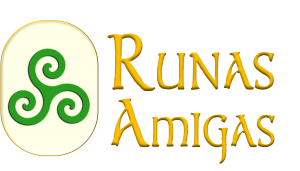culture and society
The social organization of the Celts.
Celtic society was based on principles and values that make it difficult for contemporary man to understand.
First of all, because our culture has led us to extremes of life conception and behavior, which could never be further away.
The Celts could never even conceive that man would conquer Nature and dominate its laws. The Celts, indeed, had as their internal principle and law, that Nature guarded the Divine, and that, through It, they could fulfill their mission: to penetrate the mystery of the destiny of the human being and abandon themselves with enthusiasm to the eternal flow of Fate, the Wyrd.
If we enter this perspective, it will not surprise us, therefore, that in Celtic society the female figure enjoyed effective and substantial equality with respect to the male one, and that there were no hierarchies as we understand them today. Social classes, indeed, did not exist, as only there were social functions, interchangeable. This means that clan members could choose to change functions as needed.
The Celts, then, did not consider time as a line (from the past we get to the present, and later there will be the future), but as a circle, or rather a spiral, in which the phases are the authentic components of a Time which does not have a measure, but an extension, which curves until “a cycle is not closed”, allowing you to move on to the next ring, and so on endlessly.
They are primordial structures that remind us of Sacred Geometry, the Golden Number, and everything that has the shape of a spiral in Nature. Not least the galaxies and our DNA.
If we think about it, they are very advanced concepts, both on a sociological, philosophical and scientific level.
In fact, it is no coincidence that one of the modern scientists who came closest to this conception of time, was Carl Gustav Jung, when he developed the Theory of Synchronicity, fusing his discoveries on the unconscious, with those just made by the Quantum Physics.
Let’s go back to the Celts.
The unity of Celtic society was the clan, which was divided into 3 classes, or, better to say, into 3 functions:
That of the Sages, which we know by the name of Druids;
That of the Warriors;
That of the Producers.
In all these functions, the characteristic element was that of service, which the Celts also called “sacrifice”, here to be understood in the Latin sense of the term “sacrum facere”, or “to do a sacred action”, so defined because it would have benefited to the clan.
Indeed, the Druids, with their wisdom, led the clan, since they concretely helped the king to make decisions, treated the sick, accompanied the warriors in battle, administered justice, interceded with the Gods.
The Warriors offered their lives for the clan.
The producers used their own arts (agricultural, metallurgical and aesthetic) to produce objects that would feed the clan members, supply tools to the peasants and weapons to the warriors.
And, as said before, everyone could change their function, after the requiered preparation.
For example, the druidic school was open to all, and lasted about 19 years, so whoever had the constancy and talent to attend it, would become Druid.
The same applies to the figure of the ruler, that is, of the king. He was elected by a peer council, which means that it was not a privilege that was defined on the basis of birth.
Furthermore, the Art of War was taught to all, and it is said in several sources that the Druids also practiced it.
This also applies to women. The history of the Celts, indeed, is dotted with the presence of Divinity, Queens, Female Warriors, and Female Druids, who went down in history for their heroism, independence, ability and tenacity.
We will dedicate a subsequent article to them.
We want to end this intervention with a little reflection.
The way of life of the Celts had so impressed the Romans, that they were terrified and fascinated at the same time by these tribes. And this charm has accompanied us to the present day.
Let’s think about how many TV series, not only the historical ones like Britannia and Vikings, incorporate principles, values and rituals that date back to the Celts. We like to think of the Shannara series, all those related to the Arcturian cycle, including the very recent Cursed, but also, in some ways, the dystopian and futuristic The 100.
